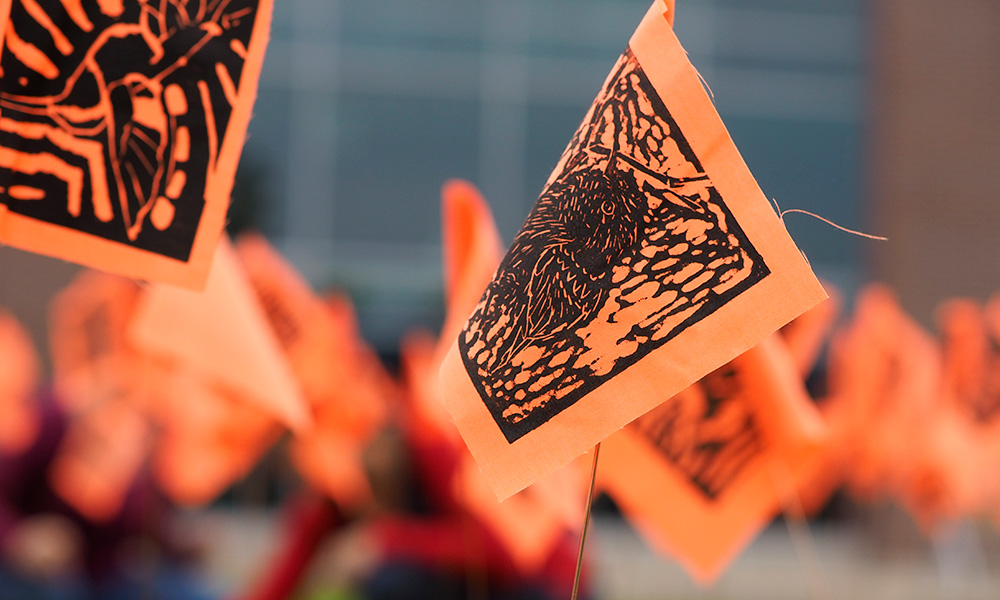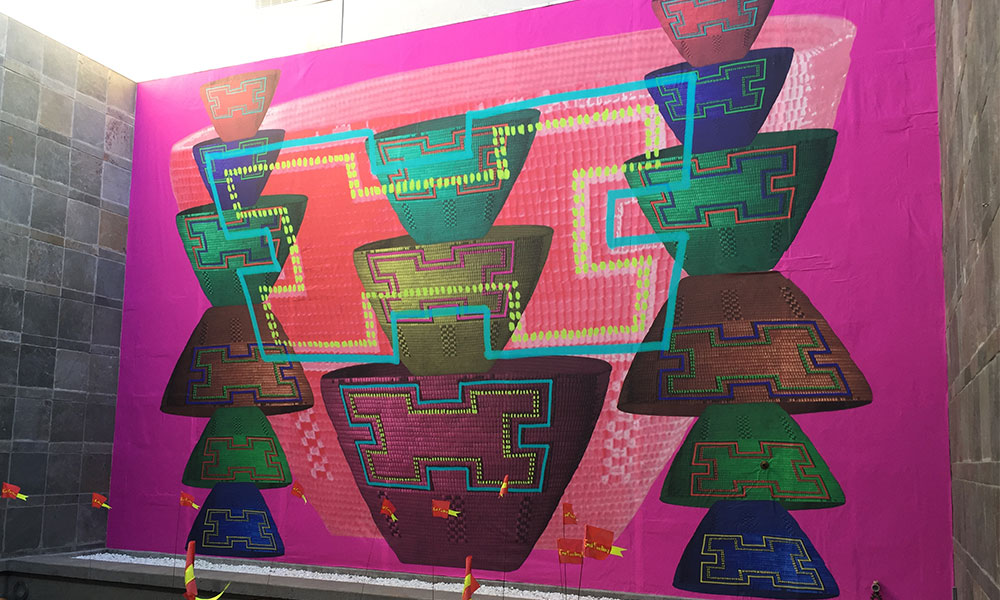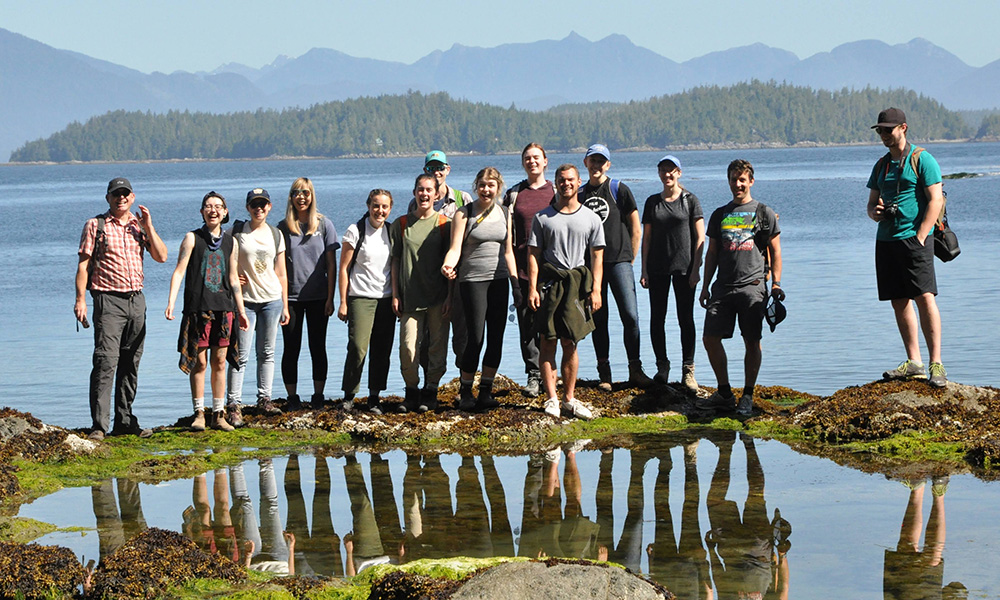BEING A CREATIVE PROFESSIONAL IN THE FINE ARTS can be a challenging career path to navigate. For visual artist and curator Tania Willard, hearing other artists speak about their practice opened up possibilities for her own path.
“When we have an example of someone doing that in their life and the kinds of ideas they bring to their practice, it’s essential for artists to see that modelled.”
Willard started in the Bachelor of Fine Arts program at Okanagan University College (now UBC Okanagan) in 1993, and one year later transferred to the University of Victoria to complete her undergraduate degree. She then lived in the lower mainland, working as an artist and curator. Willard is of Secwepemc and settler ancestry, and returned to Neskonlith reserve near Chase, BC, with her family in 2013.
With a background as an artist and curator, Willard reconnected with UBC Okanagan when she attended the Indigenous Art Intensive as an invited artist in 2014. The intensive is an interface between local, national and international Indigenous artists, scholars and curators, as well as students and faculty at UBC Okanagan. “The intensive offers a chance to hear, learn and understand from Indigenous artist practices located here and in other places.”

In 2022, students and faculty from UBCO came together for a series of workshops to carve a hummingbird relief print in honour of the children (little spirits) who never came home and to remember the unmarked graves at residential schools across Canada.
Willard jumped at the chance to connect with other artists visiting the area, including James Luna and Rebecca Belmore. When she started her Master of Fine Arts in 2016, Willard notes she could participate more fully with the structured courses around the Indigenous Art Intensive.
“I was fortunate to have more opportunities to connect with these artists, to collaborate and think together through different projects.”
During the 2018 intensive, Willard presented her thesis exhibition, which was an incredible opportunity for the visiting artists to see her work and give feedback on her thesis defence. As of 2019, Willard is the director of the program, as well as an Assistant Professor of Visual Arts in the Department of Creative Studies. “It seemed like a natural full circle to come back here to get my master’s and now teach.”
As part of her curatorial practice, Willard created Bush Gallery in 2013, based in her home territory. Bush Gallery provides a space for land-based ways of thinking and working, and also operates as an artist collective with other artists.
Willard points out that living on reserve the resources available are very different than in a larger centre. Through her role at UBCO, Willard has made a connection between the Bush Gallery and the Indigenous Art Intensive through her concepts of site/ation. “It was a chance to invite other artists to visit my home on reserve, and to understand those spaces and how we interact with our natural environment.”

Tania Willard’s digital mural titled Gut Instincts, 2018, which she created during the Indigenous Art Intensive. Gut Instincts is an affirmation of women’s intuition, gut instinct and ancestral voices. This work takes its origin in a design from a cedar-root basket collected as part of the North Pacific Jesup Expedition (1897-1902) from Stl’atl’imx territories. As an expression of Indigenous women’s art forms, the disappearance of named makers and ancestor artists represents the colonial disappearances and dispossession of Indigenous women, communities and lands.
Site/ation studio is a research-creation space that uses collaborative creative practice as a methodology to acknowledge, advocate and advance Indigenous land-based knowledge through creative making. The Site/ation studio is supported by the Canada Foundation for Innovation, and will be located near University House on campus.
“The possibility of thinking through the land and our experiences in a gallery space continues to circulate and engage.”
Willard adds that over the last couple of years, with the COVID-19 pandemic leading to gallery closures, society has become aware of the greater need for inclusivity, diversity and representation. “We see an increase in demand for galleries to change, for collections to be accountable, and for boards to include equity, diversity and indigeneity.”
Through Willard’s work at UBCO with her students and the Indigenous Art Intensive, alongside her creative practice, she brings creative thinkers together.
“Once you get people together, you get really interesting outcomes, whether that’s exhibitions, texts, or ways it feeds into local culture and community. That’s one of the most valuable things because the unexpected happens.
“We don’t often get the opportunity to share our creativity until after school finishes, when we’re out in the world trying to make our work. This is a chance to do that in advance of starting an art career.”
The post Tania Willard is bringing creative thinkers together appeared first on UBC Okanagan News.

